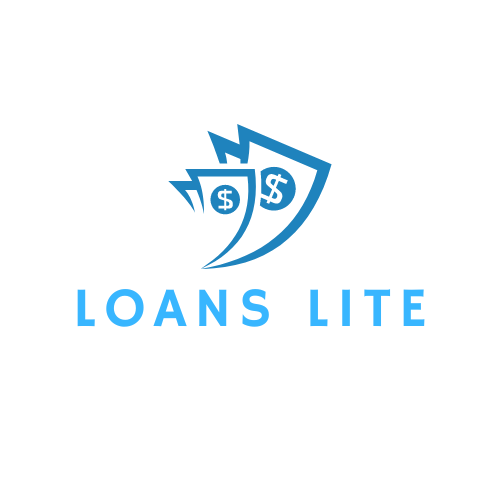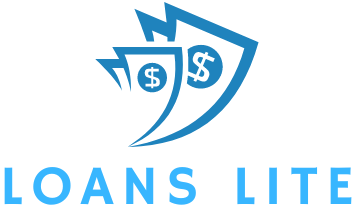When it comes to borrowing money, understanding loan terms is essential. The term of a loan dictates everything from your monthly payments to the total interest you’ll pay over time. Whether you’re financing a car, buying a home, or consolidating debt, loan terms are the foundation of your loan agreement. In this guide, I’ll break down the basics of loan terms, explore how they affect your payments, and provide tips for choosing the best loan term for your financial needs.
What Are Loan Terms?
Loan terms refer to the conditions and length of time a borrower has to repay a loan. The term includes details such as the interest rate, monthly payments, fees, and duration of the loan, all of which impact the total cost of borrowing. Loan terms vary based on the type of loan, lender, and borrower’s credit profile.
In general, loan terms are categorized as short-term or long-term. Short-term loans typically last a few months to a few years, while long-term loans can extend for several decades. Each has advantages and disadvantages, which we’ll explore further in this guide.
Key Components of Loan Terms
Several factors make up a loan’s terms, each affecting your repayment plan and overall cost. Here’s a breakdown of the most important elements:
- Principal: The amount borrowed, or the loan’s initial value, before interest and fees are added.
- Interest Rate: The percentage charged by the lender to borrow the money. Interest rates can be fixed or variable, depending on the loan type.
- Loan Term (Duration): The length of time you have to repay the loan, typically measured in months or years.
- Monthly Payment: The amount you pay each month, which is determined by the loan principal, interest rate, and loan term.
- Fees: Additional costs associated with the loan, such as origination fees, late payment fees, and prepayment penalties.
Types of Loan Terms by Loan Type
Loan terms differ significantly across various types of loans. Here’s a look at common loan terms for popular loan types:
1. Mortgage Loan Terms
- 15-Year Mortgage: This shorter term has higher monthly payments but less interest paid over time. Often chosen by those who want to pay off their mortgage faster.
- 30-Year Mortgage: The most common mortgage term, offering lower monthly payments, though you’ll pay more interest over time.
- Adjustable-Rate Mortgages (ARMs): These mortgages start with a fixed rate for a set period (e.g., 5 years) and then adjust based on market rates, making monthly payments unpredictable after the initial period.
2. Auto Loan Terms
- 36 to 48 Months: Shorter auto loan terms that lead to lower overall interest but higher monthly payments.
- 60 to 72 Months: The standard range for auto loans, balancing monthly payments and total interest.
- 84+ Months: Longer terms with lower monthly payments but higher total interest. These terms may lead to negative equity if the car’s value depreciates faster than the loan is paid down.
3. Personal Loan Terms
- 12 to 24 Months: Short-term loans with higher monthly payments but lower interest costs, ideal for borrowers who can repay quickly.
- 36 to 60 Months: Standard personal loan terms that balance affordability and total interest paid.
4. Student Loan Terms
- 10-Year Standard Term: Federal student loans have a standard 10-year repayment period but can extend based on repayment plans.
- Extended and Income-Driven Repayment Plans: These plans can extend terms to 20-25 years, with monthly payments based on income.
Fixed vs. Variable Loan Terms
Loan terms can also be structured with fixed or variable interest rates, each with its pros and cons:
- Fixed-Rate Loans: The interest rate remains the same for the loan’s duration, providing predictable monthly payments. Fixed-rate loans are popular for mortgages and personal loans because they offer stability and protection from market fluctuations.
- Variable-Rate Loans: The interest rate fluctuates over time based on market rates. These loans start with lower rates, making them appealing for short-term borrowing, but rates can increase over time, raising monthly payments.
How Loan Terms Affect Monthly Payments and Total Interest
The length of your loan term has a significant impact on your monthly payments and the total interest you’ll pay. Here’s how:
- Shorter Terms: Shorter loan terms mean higher monthly payments but less interest paid overall, making them ideal if you want to pay off the loan quickly and minimize interest costs.
- Longer Terms: Longer terms spread payments over more time, lowering monthly payments. However, they increase the total interest paid, making them more costly in the long run.
For example, a 5-year auto loan will have higher monthly payments but less total interest compared to a 7-year loan on the same principal amount and interest rate. This principle applies across most loan types, making term length a crucial factor when planning your budget and repayment goals.
Choosing the Right Loan Term: Factors to Consider
Choosing the right loan term depends on your financial goals, budget, and risk tolerance. Here’s what to consider:
- Monthly Budget: Evaluate your monthly income and expenses to determine how much you can comfortably allocate toward loan payments.
- Total Interest Costs: If minimizing interest is a priority, opt for shorter loan terms, which have higher payments but less total interest.
- Loan Type: Different loan types have typical term lengths, so your options may be influenced by the loan’s purpose. For example, a 15-year mortgage may work for a primary residence, but a 30-year term might suit investment properties better.
- Income Stability: If your income is steady, a shorter loan term could be manageable. However, if your income is uncertain or fluctuating, a longer term may offer more flexibility.
- Prepayment Options: If you anticipate being able to make extra payments, check if the loan allows for prepayment without penalties. This flexibility lets you choose a longer term while potentially paying off the loan early.
How to Negotiate Better Loan Terms
Securing favorable loan terms isn’t always straightforward, but there are ways to improve your chances:
- Improve Your Credit Score: A high credit score demonstrates your reliability, which can lead to lower interest rates and better loan terms.
- Shop Around: Compare offers from multiple lenders to find the best terms for your situation. Many lenders provide free quotes, allowing you to compare interest rates and fees.
- Negotiate Loan Fees: Ask about reducing or waiving fees, such as origination or application fees, which can add to the loan’s cost.
- Offer a Larger Down Payment: A larger down payment reduces the loan-to-value (LTV) ratio, often resulting in better loan terms and lower interest rates.
- Consider a Cosigner: If you have a lower credit score, adding a cosigner with good credit can help you secure better terms.
Pros and Cons of Short-Term vs. Long-Term Loans
Short-term and long-term loans each have advantages and disadvantages. Here’s a comparison to help you decide:
Short-Term Loans
- Pros: Lower total interest, faster loan payoff, and potential savings in the long run.
- Cons: Higher monthly payments, which can strain your budget if finances are tight.
Long-Term Loans
- Pros: Lower monthly payments, making budgeting easier, especially for large loans like mortgages.
- Cons: Higher total interest, longer repayment period, and potentially greater risk of default if circumstances change over time.
Conclusion: Choosing the Best Loan Terms for Your Financial Goals
Understanding loan terms is essential for making informed borrowing decisions. Shorter terms may be more appealing if you want to save on interest and pay off debt quickly, while longer terms offer lower monthly payments that can fit better within a tight budget. Before committing to a loan, carefully consider your financial goals, monthly budget, and future plans. Remember, there’s no one-size-fits-all answer – the best loan term is the one that aligns with your unique financial situation and long-term aspirations.
FAQs About Loan Terms
- What is a typical loan term for a mortgage? – The most common mortgage terms are 15 and 30 years, though other options like 10 or 20 years may also be available.
- Can I pay off a loan early? – Many loans allow early payoff, but check with your lender for prepayment penalties. Paying off a loan early can save on interest.
- What’s the difference between a fixed-rate and variable-rate loan? – A fixed-rate loan has a stable interest rate over the term, while a variable-rate loan’s rate can change, potentially impacting monthly payments.
- How can I get better loan terms? – Improve your credit score, compare lenders, and consider a cosigner. Offering a larger down payment can also lead to better terms.
- Does loan term affect my interest rate? – Yes, longer terms often come with higher interest rates since the lender’s risk is extended over time.
By understanding loan terms and exploring your options, you can make informed choices that benefit your financial future and help you achieve your goals with confidence.




